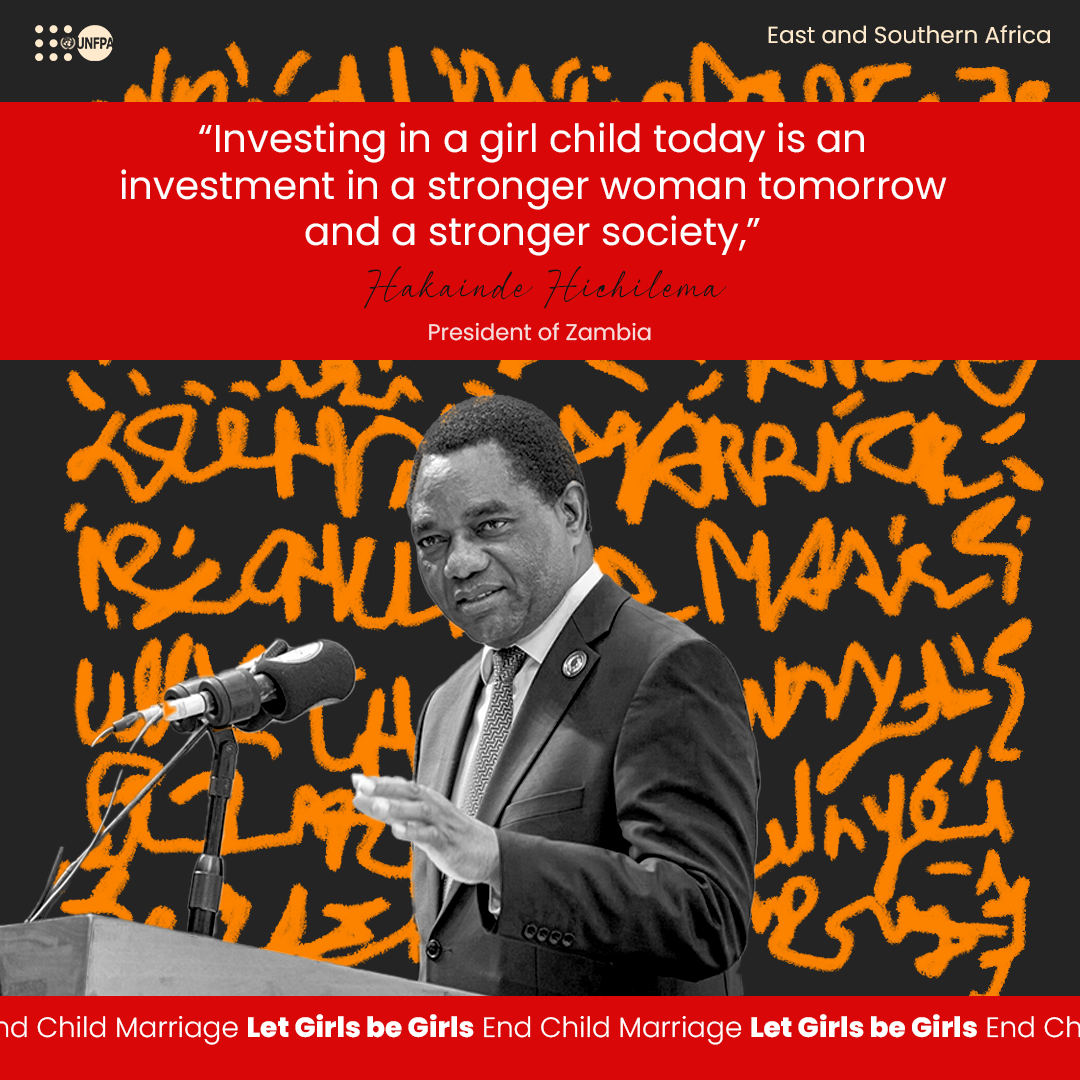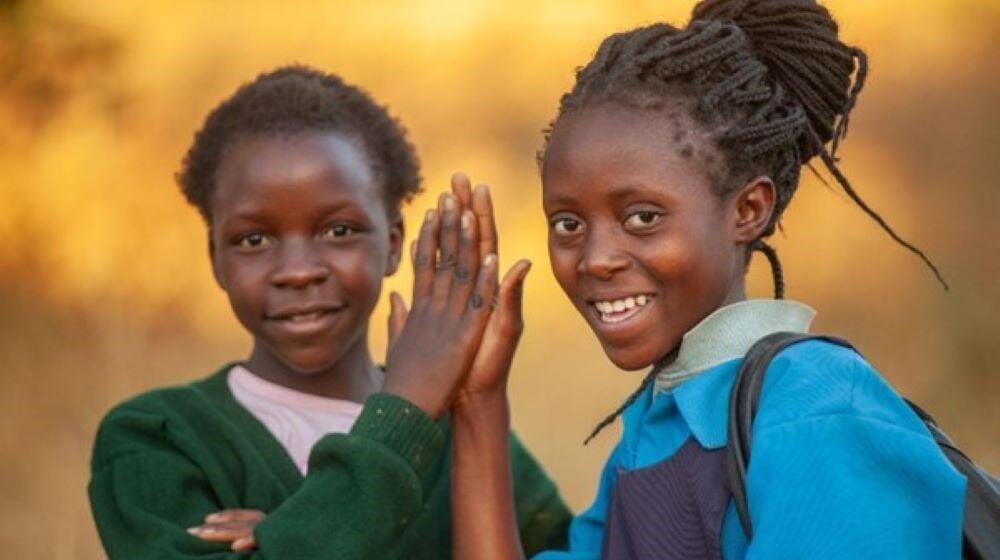In a monumental stride towards safeguarding the rights of young girls, Zambia has enacted a groundbreaking law to end early child marriage.
On December 26, 2023, the Zambian Parliament passed historic legislation making it illegal for individuals under 18 to marry, including under customary law. This decisive action addresses the country’s alarming rate of child marriage, where 29 per cent of girls are married by age 18.President Hakainde Hichilema, during the 2024 Women’s Day celebration, proclaimed, “Investing in a girl child today is an investment into a stronger woman tomorrow and in a stronger society.” His words underscore the importance of this new law in tackling harmful practices l and societal challenges head-on.
Personal resolve and advocacy
Minister of Community Development and Social Services Doreen Mwamba hailed the new legislation as a victory. At a High-Level Interactive Dialogue organized by UNFPA during the 68th Session of the Commission on the Status of Women in New York, she declared, “The legal and policy framework plays a critical role in fighting gender-based violence by establishing a foundation for prevention, intervention, and protection. Zambia is resolute in ensuring that adequate legal provisions are in place to protect children from child marriages.”
Sharing a poignant personal story, Mwamba recalled a distressing call from Kasama about her 14-year-old close relative being married off. Despite her family member’s claim of wanting to marry, Mwamba intervened decisively, contacting the police to retrieve the girl. The following day, the police arrested everyone involved, including the boy’s parents, the girl’s parents, and the village elders. Even the goats given as a bride price were taken to the police. Since that incident, no children have been married in that village. The girl, not pregnant, is now thriving in boarding school. This personal victory fueled Mwamba’s determination to push for clearer laws and end child marriage.
Before the new law, Mwamba campaigned tirelessly from 2011 to 2021, witnessing the vulnerabilities faced by children, particularly in areas like Kapiri Mposhi district. Adolescent girls were often exploited by truck drivers, leading to high rates of pregnancy and related health issues. These experiences drove her to advocate for the Children’s Code Act, finalized in 2022, which laid the foundation for the 2023 Marriage Act revisions. Despite the challenges, Mwamba’s swift actions during the COVID-19 pandemic ensured the law’s enactment.
A united front against child marriage
Following the amendment, UNFPA supported the National Prosecution Authority in organizing a legal consultative meeting with various stakeholders to ensure comprehensive awareness and shared understanding of the relevant laws. The meeting emphasized the importance of investing in women and girls' empowerment to address high rates of adolescent pregnancy and gender-based violence.

Zambia’s First Lady, Mutinta Hichilema, has made ending child marriage and adolescent pregnancy her top priority. With support from UNFPA and UNICEF, she hosted a conference to launch her roadmap for 2024. “I implore each one of you to lend your support, whether it be through advocacy, education, or mentorship. Let us all envision a Zambia where every child has the opportunity to dream, to learn, and to thrive,” she urged.
Mrs. Hichilema emphasized the need for awareness campaigns to challenge harmful traditional practices and announced a mentorship program for young boys and girls. She pledged to advocate for ending child marriage nationwide and engage with chiefdoms about the new legal frameworks.
UNFPA’s comprehensive approach includes supporting legal and policy reform, integrating sexual and reproductive health and rights (SRHR) and GBV services, and promoting positive social behaviour change. Through the UNFPA-UNICEF Global Programme to Accelerate Action to End Child Marriage, UNFPA empowers girls, supports households in demonstrating positive attitudes, and strengthens services to protect girls' rights.
Addressing child marriage is critical as it is both a cause and consequence of adolescent pregnancy. UNFPA, with funding from the Government of Sweden, is implementing the Gender, Adolescent Pregnancy, and Social Norms (GAPS) Programme, aiming to reduce adolescent pregnancy by 5 per cent in Eastern and Southern Provinces in Zambia by 2024. The Safeguard Young People (SYP) programme, supported by Switzerland and the Netherlands, reaches out to adolescent boys and girls with health information, life skills education and advocates for supportive policies and laws.
This landmark legislation marks a special moment in Zambia’s journey towards eradicating child marriage and ensuring a brighter future for its young girls. The collective efforts of the government, international partners, and community leaders will be crucial in making this vision a reality. Together, they are building a future where every girl can dream, learn, and thrive.



